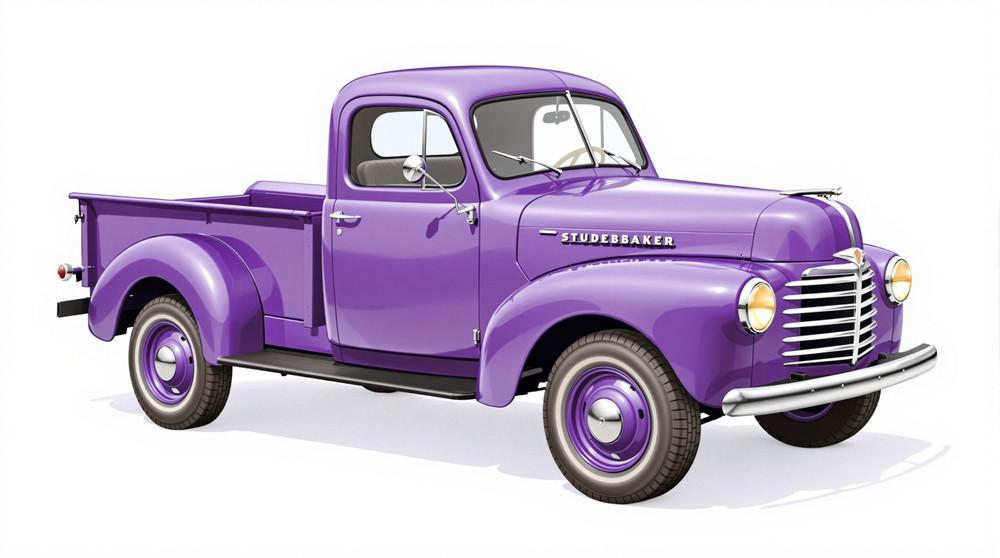Image of 1945 Studebaker M16, Note: These illustrations use artistic license and may differ from actual historical models.
Performance Metrics
Fundamental Metrics
Emotional Appeal
MMP Rating
| Engine Specifications | |
|---|---|
| Engine: | Inline 6-cylinder |
| Displacement: | 226 cu in (3.7 L) |
| Horsepower: | 94 HP |
| Torque: | Not Available |
| Compression Ratio: | Not Available |
| Ignition System: | Not Available |
| Cooling System: | Liquid-cooled |
| Performance Specifications | |
| 0-60 Time: | Not Available |
| 1/4 Mile Time: | Not Available |
| Top Speed: | Not Available |
| Transmission and Drive | |
| Drive Type: | Rear-wheel drive |
| Transmission Type: | 4-speed manual |
| Fuel and Efficiency | |
| Fuel System Type: | Carburetor |
| MPG: | Not Available |
| Dimensions and Brakes | |
| Brakes: | Hydraulic |
| Wheelbase: | 128 in (325 cm) |
| Weight: | 3,400 lbs |
Note: Specifications for classic cars are given to the best of our ability, considering the limited and variant data available.
The Stalwart Workhorse: The 1945 Studebaker M16
The year 1945 marked the end of World War II and the beginning of a new era in industrial innovation, an era that the Studebaker M16 truck would come to symbolize with its robust design and reliable performance. Crafted by the Studebaker Corporation, an emblematic American manufacturer with roots reaching back to the days of horse-drawn wagons, the M16 was a testament to the company's commitment to quality and durability. This heavy-duty vehicle not only served businesses but also played a pivotal role in post-war reconstruction efforts. A unique fact that sets the M16 apart is its transition from military service in the war to becoming a civilian workhorse, a testament to its versatility and ruggedness.
Design and Innovation
The 1945 Studebaker M16 boasted a no-nonsense exterior that was all about function over form. Its sturdy frame, commanding grille, and rounded fenders spoke of a vehicle built for endurance. The interior was spartan, with a focus on utility; however, the quality of materials used was high to withstand the rigors of heavy use. Technologically, the M16 featured advancements such as a powerful six-cylinder engine that was ahead of its time for trucks, providing reliability and strength. While color options were limited compared to today's standards, popular choices included utilitarian hues that underscored its work-ready nature. The most iconic body style was the classic flatbed truck, which became synonymous with post-war American industry.
Historical Significance
The Studebaker M16's impact on automotive design was substantial, setting benchmarks for truck durability and engine performance. It stood out from its contemporaries with its ability to transition seamlessly from military to civilian use, showcasing exceptional adaptability. Its lasting influence can be seen in the design principles of modern utility vehicles that prioritize functionality and reliability.
Performance and Handling
Performance-wise, the M16 was not built for speed but rather for power and torque, essential for hauling heavy loads. Its top speed was modest by today's standards, but it was the vehicle's stamina that made it a favorite. The truck handled well in various conditions, thanks to its robust suspension system and solid build. Driving an M16 was an exercise in raw mechanics; the rumble of the engine and the straightforward feedback from the road created an authentic driving experience that connected the driver to the heart of mid-century American industry.
Ownership Experience
Owners of the 1945 Studebaker M16 used it primarily for industrial and agricultural purposes, though some found their way into private collections as showpieces. Maintenance and reliability were strong points for the M16, with many parts being interchangeable with other Studebaker models, simplifying repairs.
Fun Facts
A piece of trivia about the M16 is that despite its civilian popularity, it remained relatively rare due to production transitioning quickly into more modern post-war models. While not known for breaking speed records, it held its own in terms of endurance and reliability. Criticisms were few but generally centered on its utilitarian comfort levels and lack of modern amenities.
Collector's Information
Today, the value range for a well-preserved 1945 Studebaker M16 can vary widely depending on condition and originality. Estimates suggest that several thousand were produced, but exact numbers are hard to come by. As for price trends, vehicles like the M16 have seen appreciation due to their historical significance and rarity, with some examples fetching significant sums at auction or private sale.
Conclusion
The 1945 Studebaker M16 is more than just a vehicle; it's a symbol of American resilience and ingenuity during a pivotal time in history. Its design and performance set standards for future generations of trucks, and its legacy as a versatile workhorse endures. For collectors and enthusiasts alike, the M16 remains a cherished piece of automotive heritage.
1945 Studebaker M16 Catalog of Parts
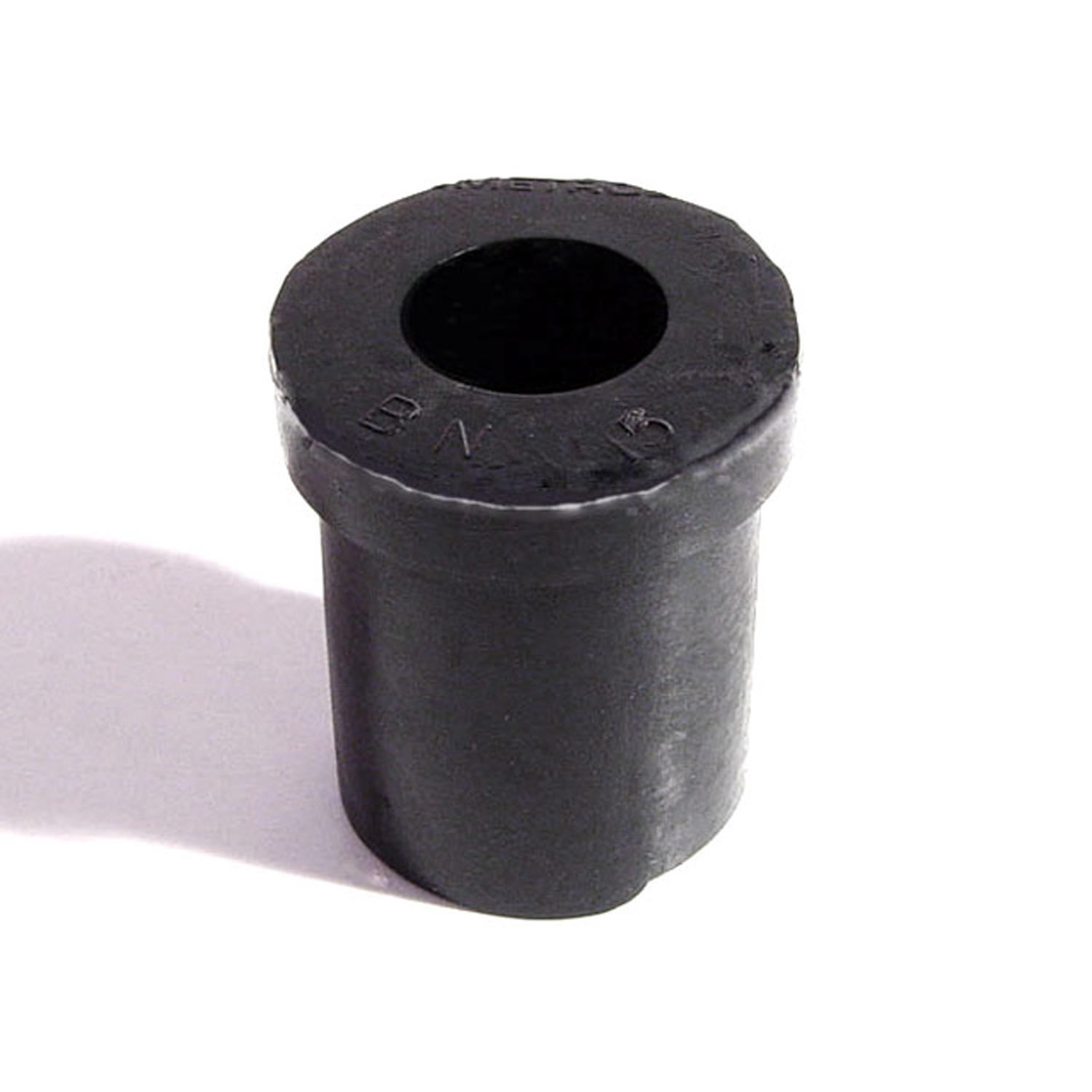 1945 Studebaker M16 Spring and Shackle Bushing. 7/8" bottom O.D-BN 15Spring and Shackle Bushing. 7/8" bottom O.D. X 1-1/8" high, with 1/2" I.D. Each
1945 Studebaker M16 Spring and Shackle Bushing. 7/8" bottom O.D-BN 15Spring and Shackle Bushing. 7/8" bottom O.D. X 1-1/8" high, with 1/2" I.D. Each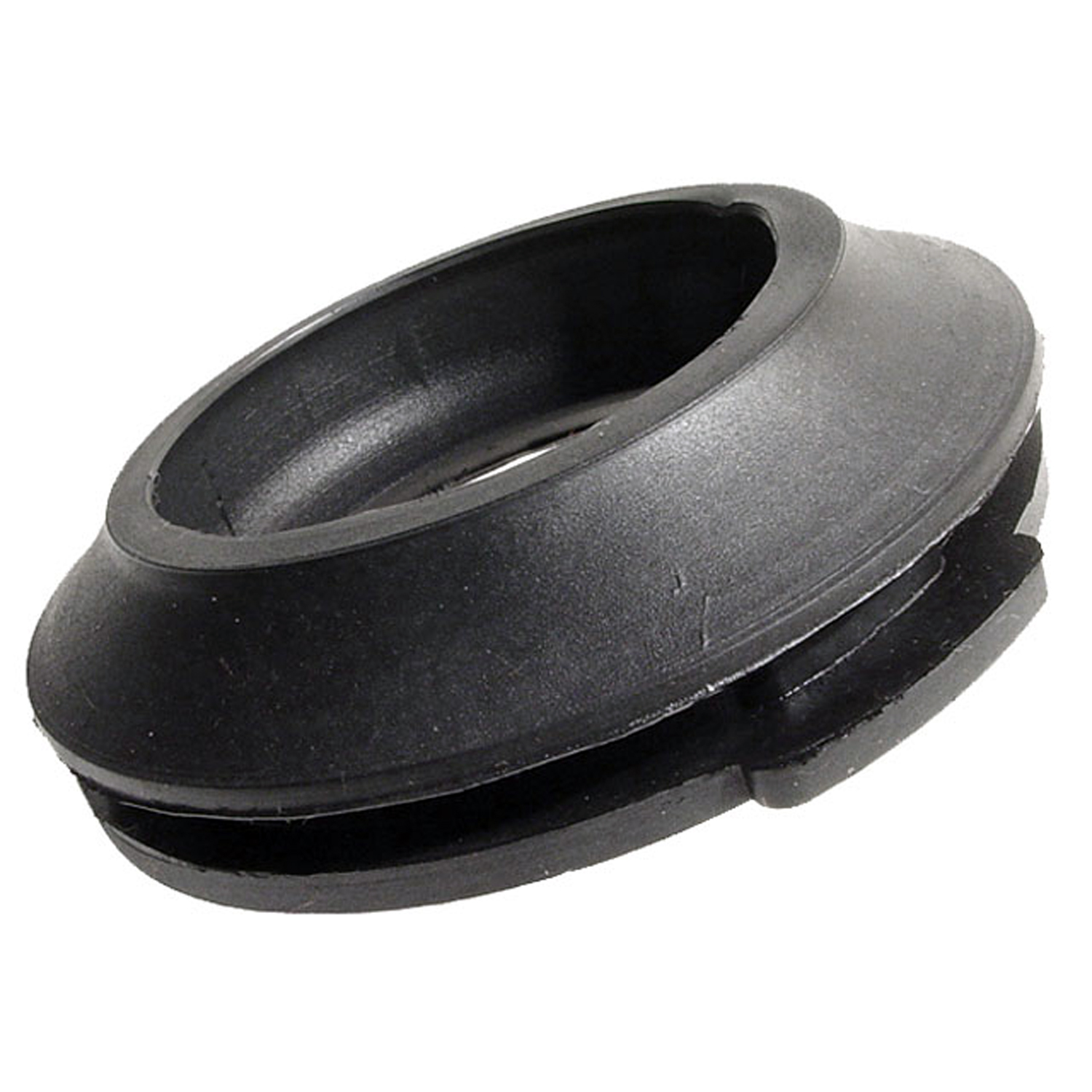 1945 Studebaker M16 Gas Filler Grommet. Perfect reproduction. Top 2-1/16" I.D-GF 45Gas Filler Grommet. Perfect reproduction. Top 2-1/16" I.D., 3-7/16" O.D. Each
1945 Studebaker M16 Gas Filler Grommet. Perfect reproduction. Top 2-1/16" I.D-GF 45Gas Filler Grommet. Perfect reproduction. Top 2-1/16" I.D., 3-7/16" O.D. Each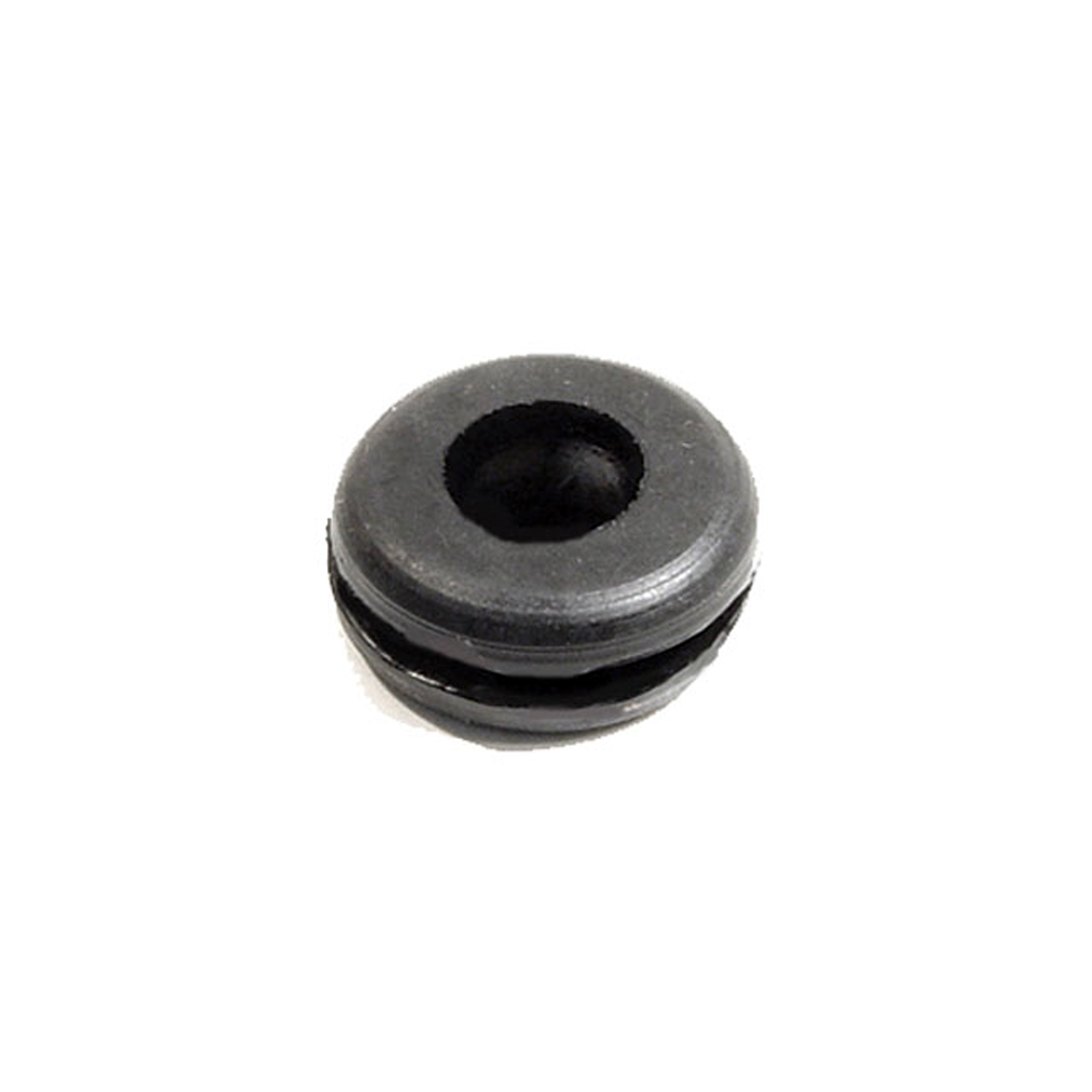 1945 Studebaker M16 Headlight & Tail-Light Wire Grommet. 3/8" I.D., 7/8" O.D-SM 13-AHeadlight & Tail-Light Wire Grommet. 3/8" I.D., 7/8" O.D. Each
1945 Studebaker M16 Headlight & Tail-Light Wire Grommet. 3/8" I.D., 7/8" O.D-SM 13-AHeadlight & Tail-Light Wire Grommet. 3/8" I.D., 7/8" O.D. Each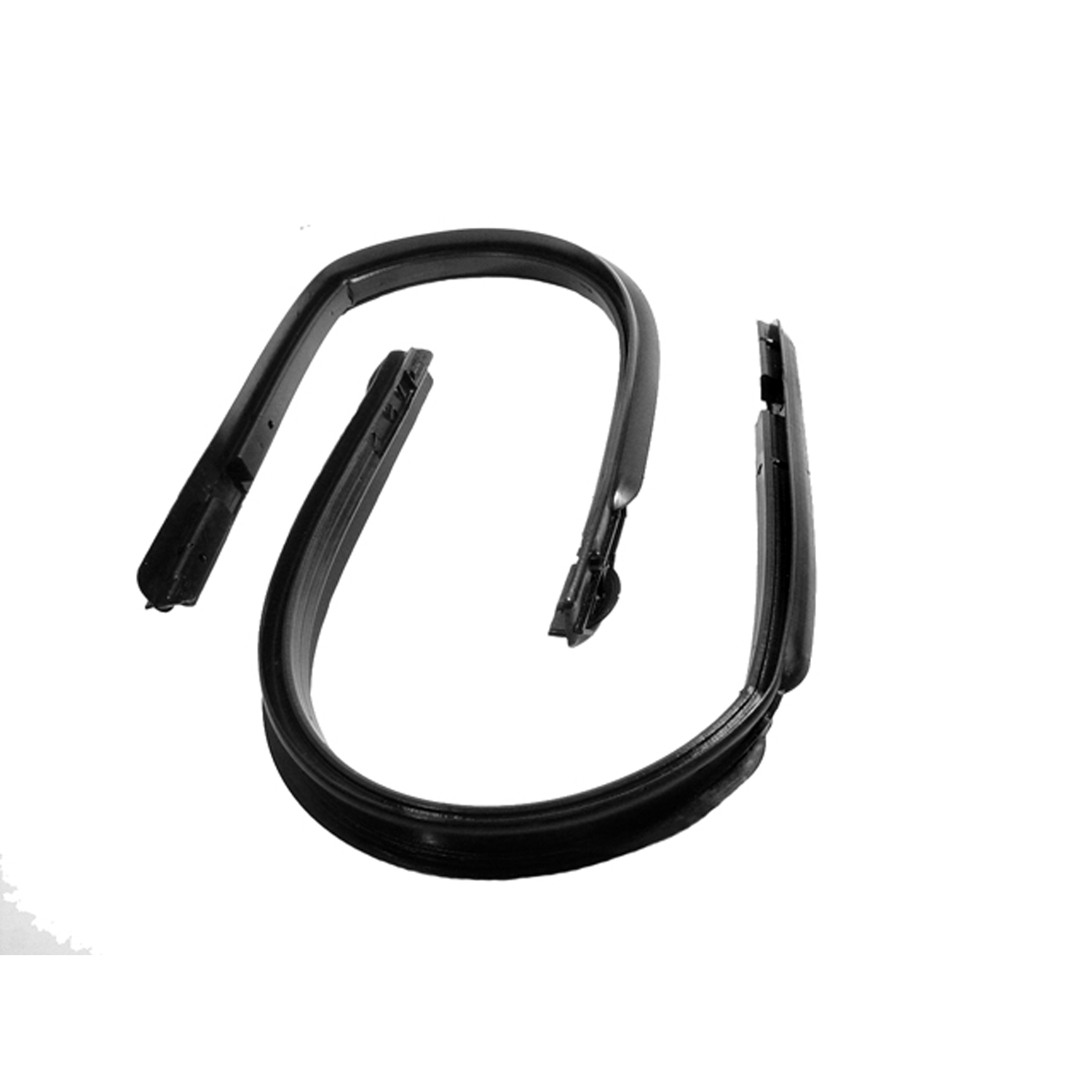 1945 Studebaker M16 Front Vent Window Seals. 28-7/8" long each. Pair R&L-WR 9401Front Vent Window Seals. 28-7/8" long each. Pair R&L
1945 Studebaker M16 Front Vent Window Seals. 28-7/8" long each. Pair R&L-WR 9401Front Vent Window Seals. 28-7/8" long each. Pair R&LWhy Choose Metro?
For over 100 years, Metro Moulded Parts has been the pinnacle of quality in classic car restoration parts. Our commitment to precision and authenticity in every component ensures a perfect fit and an OEM-level appearance.
- Expert Craftsmanship & Quality: Each part is a testament to our dedication to reliability and perfection, crafted from original designs and thoroughly tested.
- Advanced Technology: We use cutting-edge techniques to create flawless, long-lasting parts that surpass others in performance.
- SuperSoft Sponge – The Ultimate Door Seal: Not only are our door seals 30% softer than competitors', but they're also guaranteed to never leak. They effectively reduce wind and road noise, enhancing your classic car's comfort and driving experience.
- Proudly American: Our parts are a product of American craftsmanship, made in the USA with a spirit of excellence and heritage.
- Unrivaled Warranty: We back our products with a 30-year industry-leading warranty, a testament to our confidence in their quality.
Join us in preserving the legacy of classic cars with parts that are crafted for perfection, not just made.

